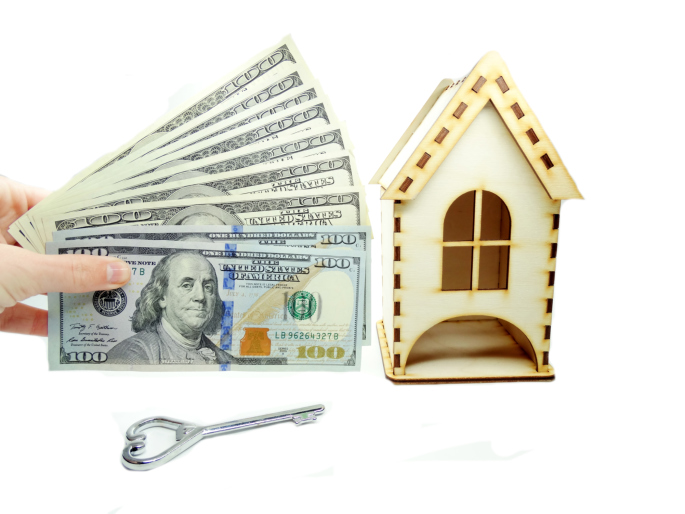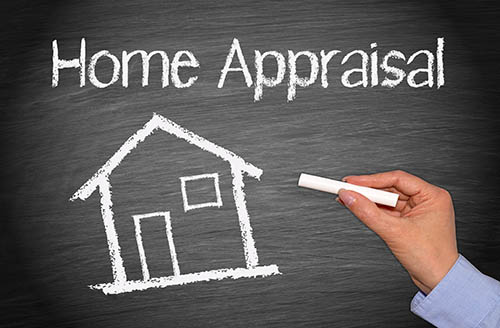 During the 1970s, home building picked up on the idea of a cheap but effective way to reduce sound travel from one floor to the next: popcorn ceilings. Essentially, after the drywall was installed, a finisher would come in with a plaster mix and spray on the ceiling drywall for a bit of a lumpy effect. The disparate clumps and bumps not only created a texture to an otherwise flat-looking ceiling, they also helped break up sound waves. After being spray-painted in white, the ceiling texture essentially blended with the rest of the room to produce a finished look. Popcorn ceilings were such a common approach, entire home subdivisions had cookie-cutter ceiling work done by teams on new homes.
During the 1970s, home building picked up on the idea of a cheap but effective way to reduce sound travel from one floor to the next: popcorn ceilings. Essentially, after the drywall was installed, a finisher would come in with a plaster mix and spray on the ceiling drywall for a bit of a lumpy effect. The disparate clumps and bumps not only created a texture to an otherwise flat-looking ceiling, they also helped break up sound waves. After being spray-painted in white, the ceiling texture essentially blended with the rest of the room to produce a finished look. Popcorn ceilings were such a common approach, entire home subdivisions had cookie-cutter ceiling work done by teams on new homes.
A Bad Memory From the Past
Today, popcorn ceilings are like sheet vinyl on flooring, relics of the 1970s decade and almost a trigger for a negative gut reaction from anyone who lived in that time period, particularly as a kid. Worse, prior to 1978, some of the material used to create the popcorn ceiling also included asbestos under the idea that it would improve safety and increase fire resistance ( disregarding the fact that asbestos is extremely hazardous to breathe once airborne).
Leverage for a Buyer, Vulnerability for a Seller
No surprise, anyone in modern times coming into a used home as a new buyer and owner will likely want to have the popcorn ceiling texture completely removed and redone. In some cases, during a buyer’s market, some prospects will actually want the seller to pay for the work to sell the home quickly.
Sellers should expect, at a minimum, that the issue will be used to argue for a lower price, at least in a normal market or where there is competition to secure a buyer. Only during a seller’s market will the presence of the popcorn ceiling pretty much be a non-issue for a quick sale.
While it might seem tempting to just have the owner scrape the ceilings and repaint them, it’s best to have a professional take care of the removal in a clean process. Especially if the home is older than 1978, the work could be hazardous and require specific steps for proper mitigation.
 Due to recent changes in federal regulations, consumers are now allowed to freeze their credit free of charge. Prior to changes in these regulations, credit bureaus would charge consumers for freezing their credit. What does this mean, and why might someone want to do this?
Due to recent changes in federal regulations, consumers are now allowed to freeze their credit free of charge. Prior to changes in these regulations, credit bureaus would charge consumers for freezing their credit. What does this mean, and why might someone want to do this? When decorating a small space, there is a general desire to make the space look and feel larger than it is while also meeting basic functional needs in the room. For example, there may be a need to accommodate seating for a group of people in a living room, but there also may be a desire to provide ample space for foot traffic so the area does not feel cramped. By following a few important tips, it is possible to furnish smaller spaces so that they are functional and do not feel cramped.
When decorating a small space, there is a general desire to make the space look and feel larger than it is while also meeting basic functional needs in the room. For example, there may be a need to accommodate seating for a group of people in a living room, but there also may be a desire to provide ample space for foot traffic so the area does not feel cramped. By following a few important tips, it is possible to furnish smaller spaces so that they are functional and do not feel cramped. Once you’re done with debt and you’ve started to save, it’s commonly the case that you’ll start hearing about the risks and rewards of investing in stocks or real estate. Unfortunately, it can be difficult for many people to know what type of investment is going to work better for them down the road. If you’re currently considering what you should put your money into, here are some reasons you may want to turn to real estate.
Once you’re done with debt and you’ve started to save, it’s commonly the case that you’ll start hearing about the risks and rewards of investing in stocks or real estate. Unfortunately, it can be difficult for many people to know what type of investment is going to work better for them down the road. If you’re currently considering what you should put your money into, here are some reasons you may want to turn to real estate. Office work has changed significantly during the past few years. With many people working well from home, numerous employers are becoming open to the possibility of allowing their employees to work from home permanently. With many people looking for ways to be productive from home, it is critical to create an environment that is conducive to being productive. How can homeowners make this happen?
Office work has changed significantly during the past few years. With many people working well from home, numerous employers are becoming open to the possibility of allowing their employees to work from home permanently. With many people looking for ways to be productive from home, it is critical to create an environment that is conducive to being productive. How can homeowners make this happen? The real estate market is rife with terminology that can make a home purchase seem more than a little complicated. If you’re currently looking for a home and are considering your loan options, you may have even heard the term ‘Debt to Income’ ratio. In the interest of simplifying things, here are some insights on what this term means and how it can impact your home investment.
The real estate market is rife with terminology that can make a home purchase seem more than a little complicated. If you’re currently looking for a home and are considering your loan options, you may have even heard the term ‘Debt to Income’ ratio. In the interest of simplifying things, here are some insights on what this term means and how it can impact your home investment. There are many homeowners who are looking for ways to reduce their monthly expenses. One way to do that is to target energy bills and expenditures. Homeowners might be able to make a few changes and upgrades to their homes, which could reduce utility bills and improve energy efficiency. What are a few ways to do exactly that?
There are many homeowners who are looking for ways to reduce their monthly expenses. One way to do that is to target energy bills and expenditures. Homeowners might be able to make a few changes and upgrades to their homes, which could reduce utility bills and improve energy efficiency. What are a few ways to do exactly that? There are a few parts of American culture that people believe define this country. One element is the dream of homeownership. There is a strong belief that people need a place to call home. Therefore, since the dawn of this country, the government has tried to incentivize people to purchase a home.
There are a few parts of American culture that people believe define this country. One element is the dream of homeownership. There is a strong belief that people need a place to call home. Therefore, since the dawn of this country, the government has tried to incentivize people to purchase a home.  It can be a bit of a surprise if your home turns out to be valued at less than the purchase price offered, but this is the type of thing that can occur in an appraisal situation. While this can change everything from your contract to the amount of your down payment if your home has been appraised at less than you envisioned, here are some options you may want to consider.
It can be a bit of a surprise if your home turns out to be valued at less than the purchase price offered, but this is the type of thing that can occur in an appraisal situation. While this can change everything from your contract to the amount of your down payment if your home has been appraised at less than you envisioned, here are some options you may want to consider. Many people look forward to the long, relaxed, sunny days of summer, but they also dread opening up their energy bills throughout the summer months. Cooling a home can be costly, and many are searching for convenient ways to lower cooling costs without sacrificing on comfort inside the home on the warmest days of the year. These are just a few of the cost-effective and convenient options that can help homeowners to reduce cooling costs throughout the summer.
Many people look forward to the long, relaxed, sunny days of summer, but they also dread opening up their energy bills throughout the summer months. Cooling a home can be costly, and many are searching for convenient ways to lower cooling costs without sacrificing on comfort inside the home on the warmest days of the year. These are just a few of the cost-effective and convenient options that can help homeowners to reduce cooling costs throughout the summer.